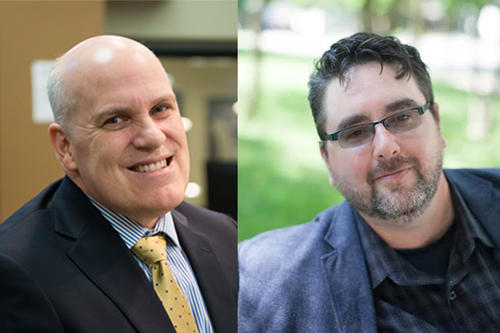
In recent days, mobile carriers Sprint and T-Mobile have announced a merger—pending regulatory approval.
Two University of Minnesota faculty are available for comment on the consumer implications of the pending deal and what comes next.
Paul Vaaler, J.D., Ph.D.
“At least two U.S. federal regulators, the Federal Communications Commission (FCC) and the Department of Justice (DOJ) will give this deal a close review for its impact on consumer choice and pricing (DOJ) and carrier access (FCC). The combined entity will be the second largest wireless carrier by total subscribers and leave only three large conventional wireless carriers in the U.S.
“An old adage in the wireless industry is that six is too many for carriers to make money, and three is too few for consumers to get good service at competitive prices. T-Mobile and Sprint will argue to the FCC and the DOJ that the deal would leave many more than just three wireless carriers in the industry. For example, Comcast Xfinity mobile communications and others it are newer 'hybrid' wireless service providers that can compete with the large conventional wireless carriers.”
Paul Vaaler is an associate professor and the John and Bruce Mooty Chair in Law & Business at the Carlson School of Management and University of Minnesota Law School. His research and teaching interests lie at the intersection of business, law and politics, including the long-term performance stability and competition policy implications for firms in the United States.
Contact information:
[email protected]
612-625-4951 (office)
763-370-4097 (cell)
Chris Terry, Ph.D.
“A merger between T-Mobile and Sprint is an idea resurrected from the grave it was placed in four years ago by regulators during the Obama administration. Now, with pro-merger regulators in charge at the Federal Communications Commission (FCC) and under the premise of making a 5G system possible, the plan is back even as the concerns about the merger's impact on competition remain unchanged.
“Telecommunications mergers are always advertised as providing consumer benefits, but as communication and antitrust regulators review this deal, they should ask how reducing the number of national providers by 25 percent helps competition for consumers. Unfortunately, since 1996, the FCC has often adopted a strange conclusion that a merger that offers less options provides more competition. This merger, if approved, would represent another application of the agency's empirically flawed premise.”
Christopher Terry is an assistant professor of media law and ethics in the Hubbard School of Journalism and Mass Communication. His research focuses on policy implementation within the Federal Communications Commission, Federal Election Commission and the Federal Trade Commission, and the real-world effects of policies on political communication.
Contact information:
[email protected]
612-626-8516 (office)
262-893-2183 (cell)
About University of Minnesota experts:
University of Minnesota experts can provide commentary, insights and opinions on various news topics. See selected experts on UMN’s Experts Guide or inquire about additional experts via email at [email protected].
Media note:
The University of Minnesota Twin Cities is equipped with a VideoLink ReadyCam® studio for live or taped HD television interviews with our experts. To arrange an interview, contact the University News Service at (612) 624-5551 or [email protected].
- Categories:
- Law and Policy





